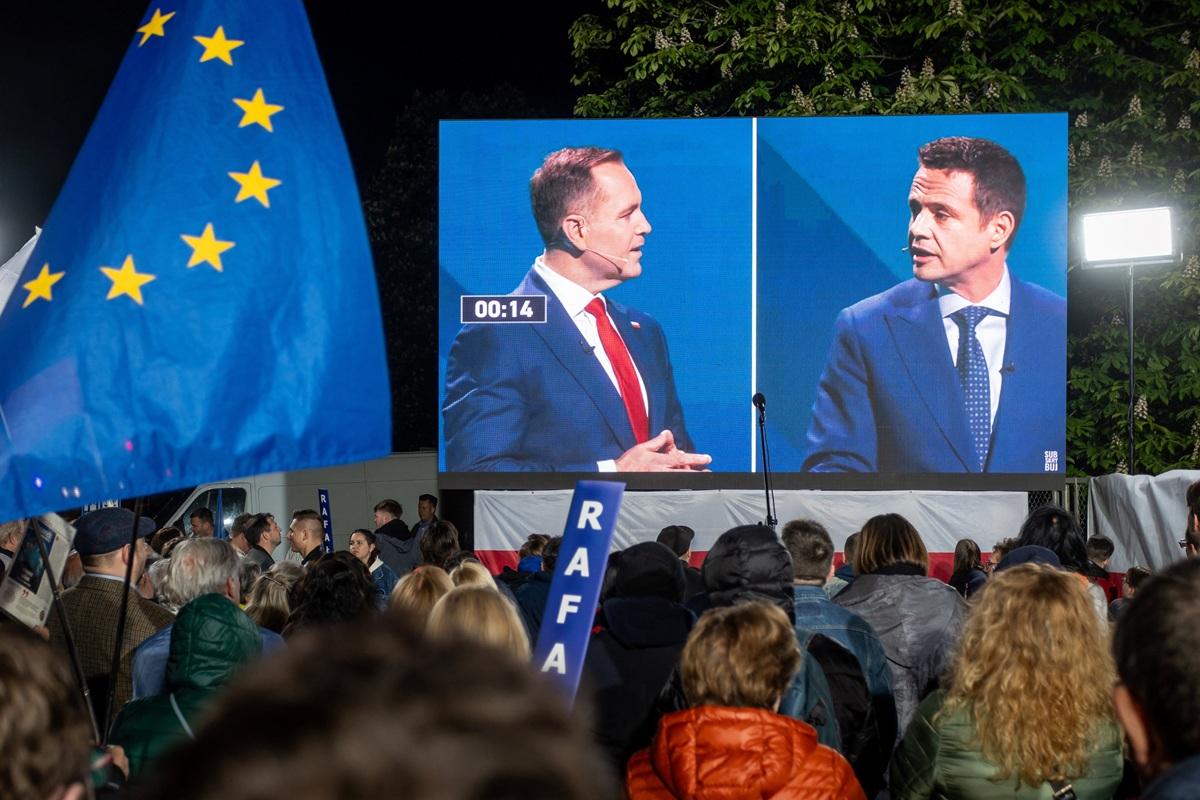News Flash

WARSAW, May 30, 2025 (BSS/AFP) - Warsaw's pro-EU mayor and a nationalist historian vying for Poland's presidency hold their last day of campaigning on Friday, with opinion polls predicting a close race in Sunday's vote, which will determine the direction of the key central European EU and NATO member.
Centrist Warsaw mayor Rafal Trzaskowski, 53, faces off against right-leaning Karol Nawrocki, 42, on Sunday in a runoff presidential vote, with some analysts describing the contest as a "clash of civilisations."
Latest polls predict a close race, with 50.6 percent of the vote going to Trzaskowski and 49.4 percent to Nawrocki, a tiny difference within the polling margin of error.
A victory for Trzaskowski would be a major boost for Poland's government, which has been in a political deadlock with the current president.
It could also mean significant changes such as the introduction of civil partnerships for same-sex couples and easing Poland's near-total ban on abortion.
A win for Nawrocki, backed by the right-wing Law and Justice Party, could undermine Poland's steadfast support for neighbouring Ukraine against Russia.
Nawrocki, an admirer of US President Donald Trump, opposes NATO membership for Kyiv and has called for curbs on benefits for the estimated one million Ukrainian refugees in Poland.
Analysts say a Nawrocki victory could also lead to fresh parliamentary elections in the EU and NATO member, which has been one of Europe's best economic performers.
Given the narrow polling margins, the result of the election may not be known until Monday.
"I would be cautious about popping the champagne on Sunday evening," said Anna Materska-Sosnowska, a political expert.
Tens of thousands of supporters took part in rival rallies for both candidates on May 25, a week before the runoff.
- 'Clash of civilisations' -
The final result is expected to hinge on whether Trzaskowski can mobilise enough supporters to come out and vote and whether far-right voters will cast their ballots for Nawrocki.
Far-right candidates fared better than expected in the first round of the election on May 18, getting more than 21 percent of the vote -- and leaving Nawrocki a larger pool of votes to draw upon.
Trzaskowski won that round by a razor-thin margin of 31 percent against 30 percent for Nawrocki.
Materska-Sosnowska called the election "a real clash of civilisations", pointing to major policy differences between candidates who have diverging views on abortion or LGBTQ rights.
The job of Polish president is sometimes dismissed as a ceremonial post, but it comes with crucial veto power over legislation.
And that has often stymied Prime Minister Donald Tusk, a former European Council chief whose centrist Civic Coalition (KO) has clashed on multiple fronts with conservative President Andrzej Duda since it came to power in 2023.
In Kleszczow, a village in central Poland where far-right candidates got around a third of the vote in round one, most people AFP spoke to said they would vote for Nawrocki on Sunday.
"If Trzaskowski wins, they (the ruling centrists) will sell the country, destroy it," 40-year-old Kamil Skulimowski, who works at the local coal mine, told AFP.
Anna Bednarska, a 27-year-old greengrocer, said she would be backing Nawrocki in the runoff because she believes his opponent "wants to introduce immigrants into Poland".
"And I think it would be better for Poland to remain Poland."
The final stretch of the election campaign saw Nawrocki mired in a few scandals.
While arguing against a property tax, he claimed to only own one flat. Later it was revealed he had acquired a second one in a convoluted deal with an elderly man.
A bombshell news report also alleged he had arranged prostitutes for guests while working as a hotel security guard.
Nawrocki called the accusations "a bunch of lies" and said he would sue the news site that published the report.